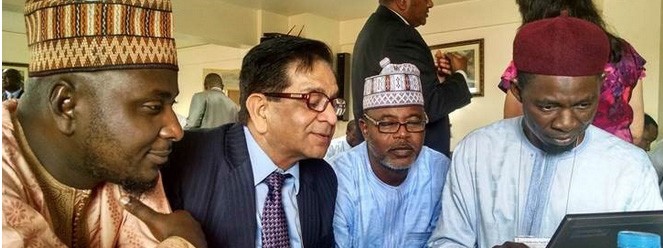- Where We Work
- Africa
- African Union
- Power Africa
- Trade and Investment
- Angola
- Benin
- Botswana
- Burkina Faso
- Burundi
- Cameroon
- Central Africa Regional
- Central African Republic
- Chad
- Côte d'Ivoire
- Democratic Republic of the Congo
- Djibouti
- East Africa Regional
- Eswatini
- Ethiopia
- Ghana
- Guinea
- Kenya
- Lesotho
- Liberia
- Madagascar
- Malawi
- Mali
- Mauritania
- Mozambique
- Namibia
- Niger
- Nigeria
- Republic of the Congo
- Rwanda
- Sahel Regional
- Senegal
- Sierra Leone
- Somalia
- South Africa
- South Sudan
- Southern Africa Regional
- Sudan
- Tanzania
- The Gambia
- Uganda
- West Africa Regional
- Zambia
- Zimbabwe
- Asia
- Europe and Eurasia
- Latin America and the Caribbean
- Middle East
- Mission Directory
Speeches Shim

Energy utilities and regulators across Africa often face challenges when it comes to accounting for the true costs of power production and setting accurate prices for consumption. This is especially true when electricity is transmitted across national borders. Power Africa and partners are helping to solve these challenges with innovative trainings and the creation of a “common vocabulary” for cross-border trade.
Across sub-Saharan Africa, Power Africa, the U.S. Agency for International Development (USAID), and experts with the National Association of Regulatory Utility Commissioners (NARUC) are educating regulators and energy providers on how to accurately reflect the cost of power generation, transmission, and distribution.
NARUC employs an interactive Cost-Reflective Tariff Simulation as part of its training sessions. This innovative exercise invites participants to explore the real-world impacts of different regulatory choices through a computer-based game. The simulation aims to improve regulators’ ability to review utility rates and provides a platform for dialogue on the importance and range of inputs regulators must consider when setting tariffs.
During the simulation, participants work in teams to respond to the common challenges facing energy regulators in developing economies. Participants can adjust the generation mix and the transmission and distribution expansion for a range of economic and political scenarios to generate tariffs for commercial, industrial and residential customers. The simulation also provides feedback on greenhouse gas emissions.
In East Africa, Power Africa, USAID, and NARUC are also working with regulators to find a “common vocabulary” to address some of the shared challenges they face in collecting accurate financial data from utilities, a move which could help spur transmission development and cross-border trade.
During a recent exchange in Kigali, Rwanda, representatives of the region’s regulators discussed how to create a regulatory tool called a “Uniform System of Accounts.”
A Uniform System of Accounts helps to ensure that regulators collect clear and consistent data from utilities, providing the necessary information to conduct tariff reviews and allocate costs. The system is an initial step to allow utilities and regulators to get on the same page about the true cost of power. This is critical when stakeholders allocate costs to build a new transmission line or enter into a wheeling agreement, which enables power to be transferred across a country's transmission lines.
In Kigali, NARUC’s expert volunteers dove deep on the details of Uniform Systems of Accounts with representatives from Burundi, Ethiopia, Kenya, Rwanda, Tanzania, and the Eastern Africa Power Pool’s (EAPP) Independent Regulatory Board.
The countries are at different points in working toward such a system that is consistent with international best practices. Even so, representatives agreed that creating a common Uniform System of Accounts for the region would produce significant benefits. A regional system would enable clear cost comparisons from country to country, thus reducing obstacles to cross-border trade and providing a more attractive and stable environment for private investment.
EAPP Technical Expert Alemu Tenibo Lefimo said the exchange on accounting practices “has provided a common vocabulary and syntax for use by all players in the EAPP power market.” The common vocabulary will help not only utilities engaging in electricity negotiations but more so all stakeholders in the energy sector in East Africa as tariffs for providing wheeling and ancillary services are designed and implemented, he said.
Representatives are planning to explore the creation of a multi-nation working group to design a regional Uniform System of Accounts, which would be launched upon approval by their respective organizations. With the support of USAID and Power Africa, NARUC will continue to engage with regulators in the region to support an enabling environment for investment.

Comment
Make a general inquiry or suggest an improvement.